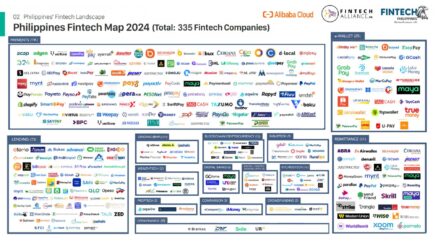When facing financial emergencies, it’s easy to let urgency cloud your judgment. However, staying vigilant is crucial to avoid falling victim to loan scams. Here are some of the most prevalent loan scams in the Philippines:
- Fake Lending Companies: The rise of digital platforms has paved the way for numerous fake lending companies. These scammers create bogus apps, social media pages, and messaging profiles to lure victims into providing sensitive information. They often offer seemingly attractive loan packages, requiring collateral which they never intend to return. Once they secure the collateral, they vanish, leaving the victim empty-handed and in distress.
- Phishing Scams: Phishing scams are a common tactic used by fraudulent lenders. In these schemes, scammers send SMS or emails containing links to fake loan websites. Unsuspecting victims apply for loans on these websites, unknowingly handing over personal data. Scammers then exploit this information for malicious purposes, such as identity theft or unauthorized transactions.
- Advance Fee Scams: In advance fee scams, fraudsters demand an upfront payment from the borrower, purportedly to demonstrate their repayment ability. This fee is often labeled as a “processing fee” and can be quite substantial. A notable example involves an Overseas Filipino Worker (OFW) who was scammed in 2023. After finding the scammer on Facebook and communicating via Telegram, the victim was instructed to make an advance payment. Following this, she was repeatedly asked for additional payments under various pretexts, such as a compromised OTP and the need to pay a loan assistant, ultimately losing a significant amount of money.
- Car Loan Scams: Car loan scams in the Philippines manifest in various forms, including the “pasalo” and “labas-casa” schemes.
- In a “pasalo” scheme, scammers deceive both the car seller and buyer. They purchase the car from the seller, promising to take over the remaining loan payments. However, instead of making the payments, they sell the car to another buyer using fake documents. This results in the original owner defaulting on the loan, while the buyer ends up with nothing.
- In a “labas-casa” scheme, scammers target individuals, often public school teachers, convincing them to apply for a car loan they cannot afford. Victims are enticed with promises of cash and potential passive income by enrolling the vehicle in a transport network vehicle service (TNVS). Once the loan is approved and the vehicle is handed over, the scammer disappears, leaving the victims burdened with debt.
- Hidden Charges: Some lenders lure borrowers with the promise of incredibly low interest rates, only to later impose hidden charges such as exorbitant processing fees and origination fees. These opportunistic lenders deliberately obscure the true cost of the loan, trapping borrowers in a cycle of debt. Remember, if an offer seems too good to be true, it probably is.
- Collection Harassment: Although not a scam in the traditional sense, collection harassment is a significant issue. Some lenders employ aggressive tactics, including incessant calls and messages, even before the due date. By accessing the borrower’s contacts, they extend their harassment to family, friends, and colleagues, publicly shaming the borrower for not settling their dues on time. This form of intimidation and public shaming adds immense stress to the borrower’s situation.
Staying informed and cautious can help you steer clear of these common loan scams. Always verify the legitimacy of lending companies, be wary of unsolicited loan offers, and scrutinize the terms and conditions before committing to any loan.


![China Bank Exchange Rate Today [Latest Update] October 2025 China Bank Exchange Rate Today [Latest Update] October 2025](https://cashloanph.com/wp-content/uploads/2023/05/china-bank-exchange-rate-today-cashloanph-438x246.png)

